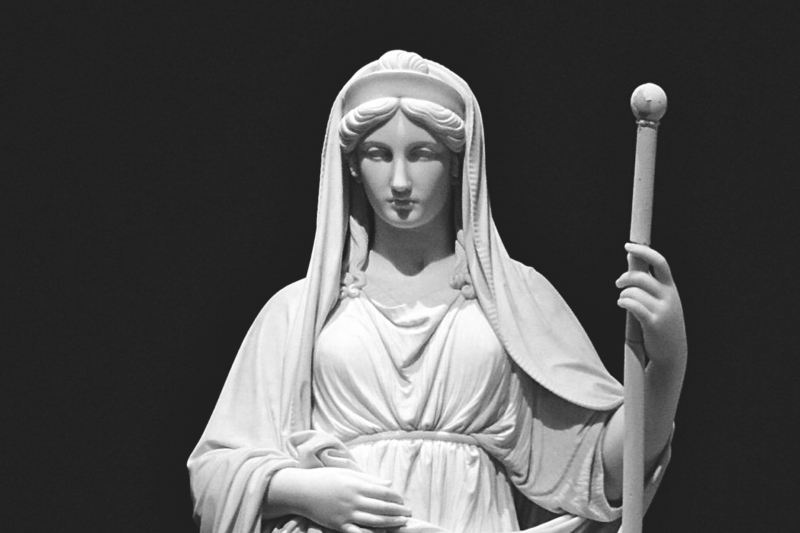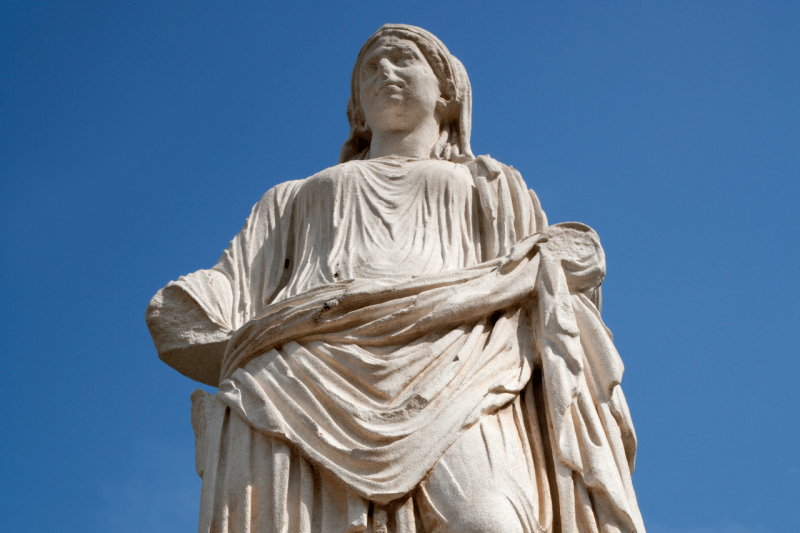Hestia Has Goddess Vesta As her Roman Equivalent

Roman religion has been greatly influenced by Greek religion. Hestia is included in the Roman version, then. They worship Vesta as the Goddess of the hearth, home, and family.
In Roman religion, Vesta is the virgin goddess of the hearth, home, and family. Rarely did she appear in human form; instead, the flames of her temple in the Forum Romanum more frequently served as representations of her. Only the Vestal Virgins, who served as her priestesses and guarded specific precious things within her temple, prepared sacred flour and salt for ritual sacrifices, and maintained Vesta's sacred fire at the temple hearth, were allowed entry. They were punished by being buried alive if found guilty of inchastity since it was believed that their virginity was crucial to Rome's survival.
A phallus that materialized in the flames of the holy hearth, the manifestation of the goddess united with a male supernatural being, miraculously impregnated a virgin priestess in one of the rare myths that depicted Vesta and her priestesses. Romulus and Remus, as well as the kind-hearted king Servius Tullius, were conceived in this manner, according to various Roman myths. Vesta was one of the twelve most revered gods in the Roman pantheon, the Dii Consentes.








